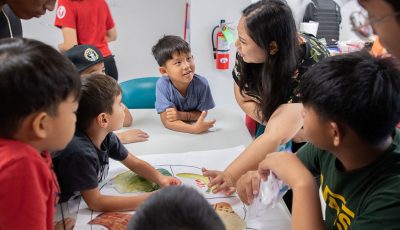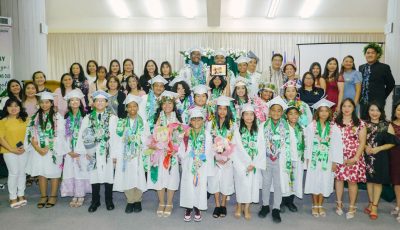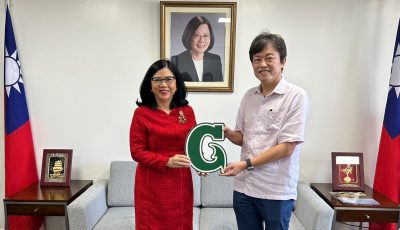Kia’aina to convene Climate Change Stakeholder Meeting
Territorial and Freely Associated State officials to join U.S. officials to discuss impacts of climate change and strategies to strengthen island resilience
WASHINGTON, D.C.— U.S. Department of the Interior’s Assistant Secretary for Insular Areas Esther Kia’aina will visit Guam from June 1 to 7 where she will confer with Guam Gov. Eddie B. Calvo and other leaders on a range of policy issues and convene the U.S. Insular Areas Climate Change Stakeholder Meeting. Nearly 90 officials from the U.S. territories and Freely Associated States, federal agencies, higher education institutions, and key non-governmental groups, will meet to discuss efforts to develop and strengthen climate change adaptation and resiliency plans and strategies for the Insular Areas.
Prior to convening the Climate Change Stakeholder Meeting on Wednesday, June 3, Kia’aina will meet with Calvo and his administration to confer on capital improvement projects and renewable energy and climate change initiatives.
“Climate change is a huge concern for the Pacific Islands and the Caribbean, but we have to do more,” said Calvo. “We created through executive order the Guam Climate Change Task Force, which will complete a comprehensive vulnerability assessment to help us better understand the threats to our island’s resources, economy, and community’s well-being. Assistance and cooperation with our federal counterparts is crucial and we thank the Office of Insular Affairs for allowing Guam to host this event.”
On Thursday and Friday, June 4 to 5, Kia’aina will convene the U.S. Insular Areas Climate Change Stakeholder Meeting, with the Government of Guam as co-host, at the Hyatt Regency Guam in Tumon. The meeting will bring together U.S. officials actively involved in addressing climate change adaptation and resilience strategies in the territories and freely associated states. Insular Area officials will share their efforts toward developing climate change action plans and have an opportunity to discuss data, tools, resources, needs, and successful programs. Panel discussions will include: disaster preparedness, energy needs and planning, role of non-governmental and regional organizations in climate change, natural and cultural resources management, and the role of insular areas higher education institutions in capacity building.
“My expectation is that through this meeting, the federal government will be better able to assess and help each of the Insular Areas develop climate change action plans, depending on their varying needs,” said Kia’aina. “This in turn would favorably position the Insular Areas to secure the necessary funding resources and assistance they will need for the implementation of such plans to improve their capacities for climate change adaptation and resiliency strategies.”
Participating officials will represent Guam, American Samoa, the Commonwealth of the Northern Mariana Islands, the U.S. Virgin Islands, the Republic of the Marshall Islands, the Federated States of Micronesia and the Republic of Palau. (OIA)




























